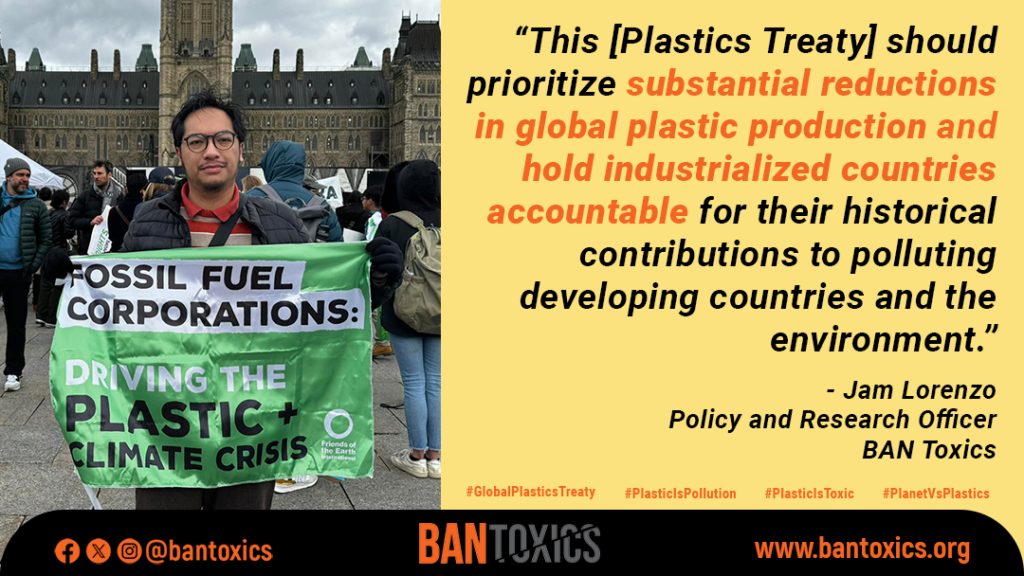
Press Statement | 3 May 2024
The intergovernmental negotiations (INC-4) for a global agreement to end plastic pollution in Ottawa, Canada, concluded with a long shot at tackling the root causes of plastic pollution.
Member states agreed on intersessional work regarding hazardous plastic chemicals in products, product design, and financial implementation before the next negotiations (INC-5) in November this year. They have also agreed to establish a legal drafting group to conduct legal review and provide recommendations.
Amidst the growing influence of plastic industry players in the negotiations and evident efforts by polluting and fossil fuel-producing countries to employ obstructionist tactics, a crucial aspect has been overlooked in the latest discussions. The issue of primary plastic production was excluded from the topics covered by intersessional work.
Providing a beacon of hope, the Philippines stood out as a progressive advocate for a high ambition treaty in the negotiations calling for an “ambitious, effective, inclusive, and science-based treaty,” emphasizing the importance of a comprehensive approach across the entire plastics lifecycle.
Aligning with champion countries led by Peru and Rwanda, the Philippine delegation backed their proposal for intersessional work targeting a 40% reduction in global primary plastics polymers use by 2040, relative to 2025 levels. The calls of civil society groups echoed alongside the country delegation’s position, emphasizing the crucial need to protect human rights and international cooperation for a just transition for vulnerable sectors, while also advocating for strengthening private sector and civil society actions.
As the deadline draws closer to finalize a global treaty, BAN Toxics continues to call for the urgent need for a high-ambition agreement that reflects global and legally binding control mechanisms, including the regulation of toxic chemicals in plastic. This treaty should prioritize substantial reductions in global plastic production and hold industrialized countries accountable for their historical contributions to polluting developing countries and the environment. BAN Toxics also calls for civil society participation in intersessional work, expressing dismay in the decision to invite only a limited number of technical experts from observer groups.
It is with high hopes that the Philippine government stands with the Filipino people, the people of developing countries, and the environment in championing our calls to significantly address the plastic crisis. It must stand firm as a genuine people’s representative in these negotiations and resist yielding to the pressures of wealthy countries and large corporations driven by profit to the detriment of our health and the environment.
Reference: Jam Lorenzo | Policy Development and Research Officer | BAN Toxics
Note: Jam Lorenzo was part of the civil society delegation to the the fourth session of the Intergovernmental Negotiating Committee to develop an international legally binding instrument on plastic pollution, including in the marine environment (INC-4), that took place from 23 to 29 April 2024 at the Shaw Center in Ottawa, Canada.
